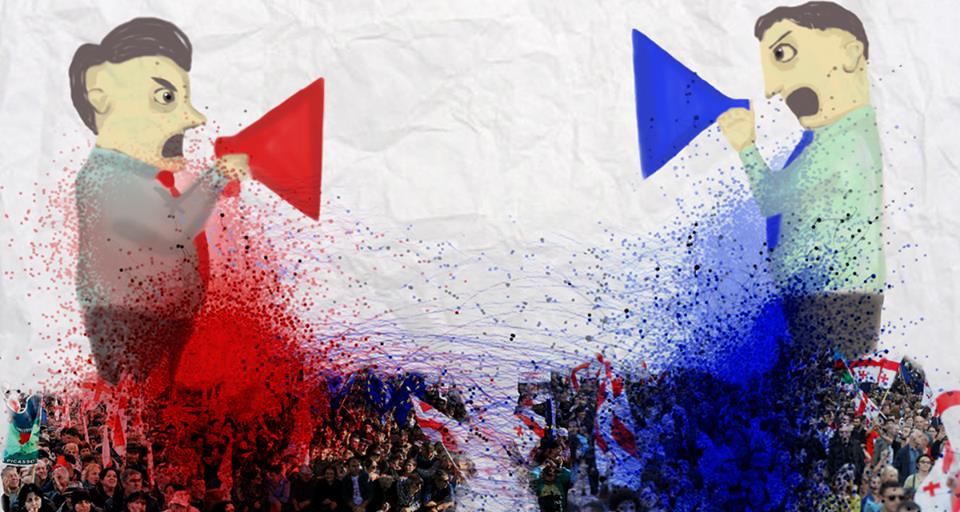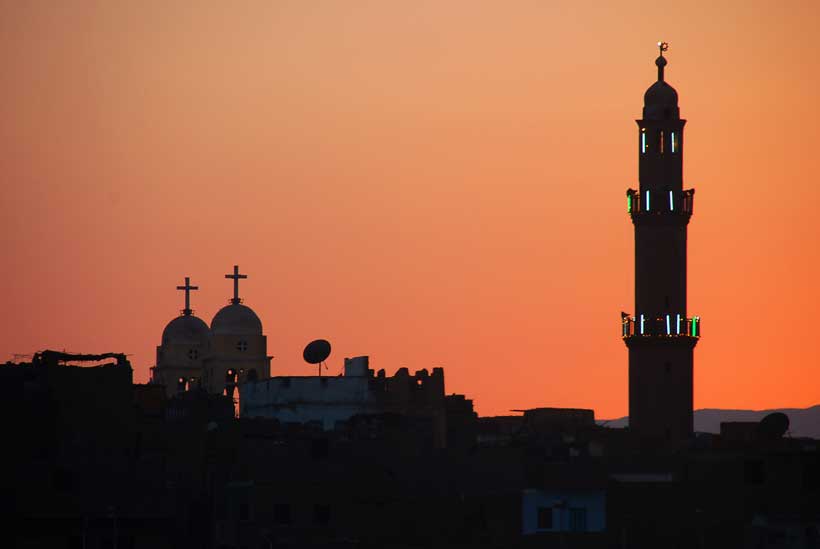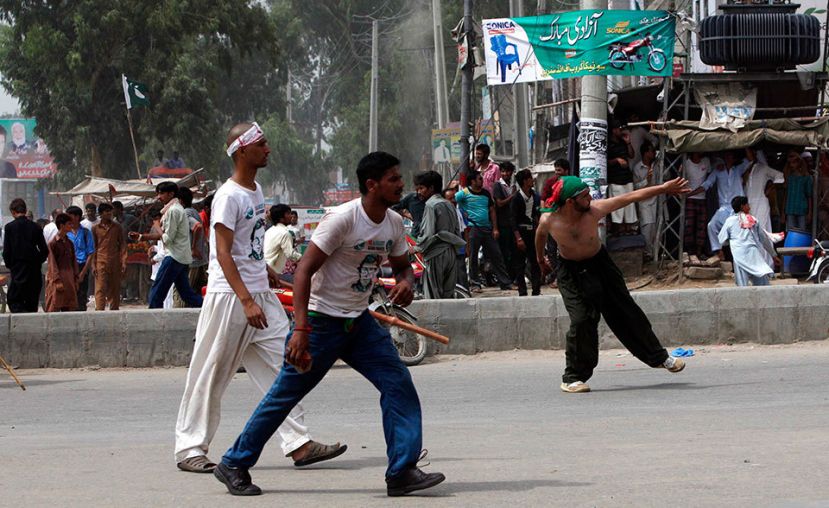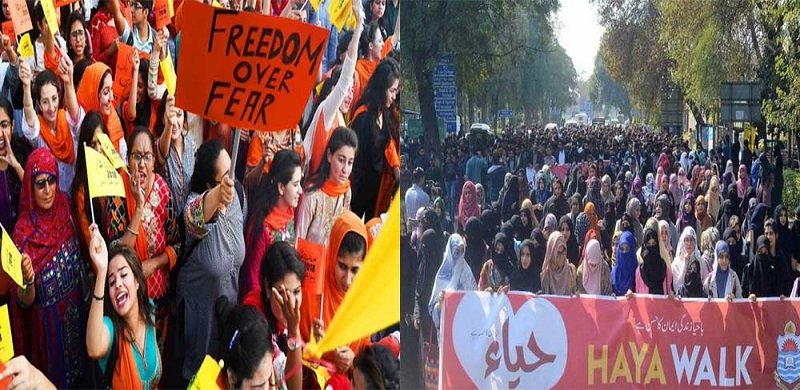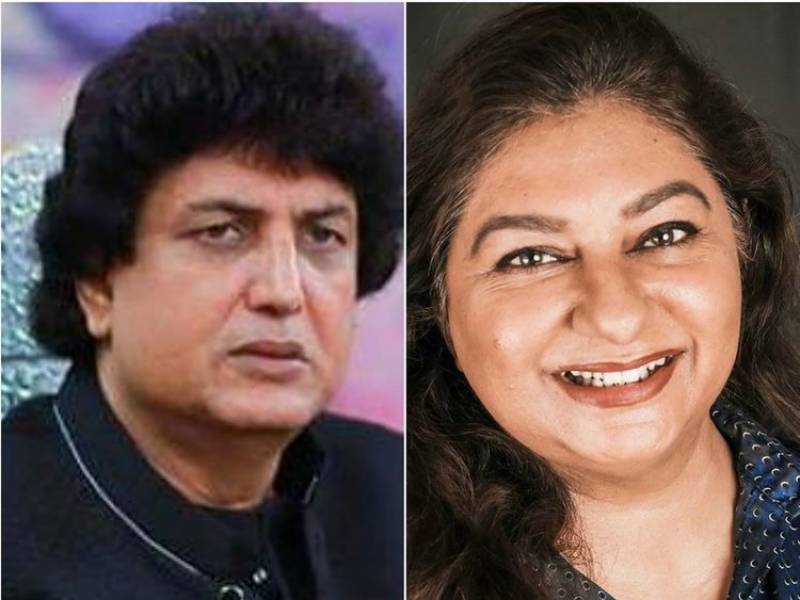Polarization is when a society splits into different factions at extreme ends, without a connecting middle ground. Polarization is shaking societies across the world, from new democracies to long-established ones. In recent years, we have seen the United States dividing between Red and Blue corresponding to the Republicans and Democrats divide. Polarization is affecting the world from Turkey to India, from Brazil to America. It’s not only a problem of the developing world but the developed world alike. Such is the case in Pakistan.
Pakistan won its independence from British India on the 14th of August, 1947. The state of Pakistan was established on the ideology of unity among Muslims of the subcontinent irrespective of their ethnicity, skin color, language, and region they come from. The idea was to unite them under a single flag to enjoy independence from any intimidating force that might restrict them from practicing what they wanted. The rights of non-Muslims in Pakistan were also acknowledged as they would be equal citizens with no discrimination whatsoever and full autonomy to practice their religion.
It all seems great and went well in the early years of the birth of the country but gradually fault lines started to appear. And the basis of the division was the same along which country’s foundation was laid. Consequently, divisions fostering enmity in political, social, and religious spheres of the country are weakening the very idea of Pakistan and threatening national integration & democracy. With the rising of sectarianism, provincialism, populism, polarized politics, religious extremism, linguistic divide, and inequality among various groups, social values are set aside to carry on the agenda for personal gain only.
This has resulted in years of violence, mistrust among people and between people & government, people & military, military & government, judiciary & government or judiciary & people, etc. To name a few, increasing polarization is deep-rooted in misuse of social media, lack of rational debate, misinformation, the special interests of politicians, and news outlets that serve as the mouthpiece of either side.
Pakistan’s political, religious, and social systems are diverse in nature. We have four provinces and federal territories each having a distinct and unique cultural and social system. Pakistan’s population is mostly Muslims but there is also great variability of beliefs from people to people within the same religion. That is because each sect has its own interpretation of the religious text and more modern issues that never existed before.
Followers of a particular sect follow their cleric’s explanation insulated from what others believe. Unfortunately, due to a lack of understanding and debate, groups overplay the politics of difference as pretexts for spreading violence and intolerance. Religious and social polarization is enhancing day by day in Pakistan that is precarious and hazardous for the future of our country.
Not a single day passes without the forces of polarisation manifested. Each issue divides us and we jump to cling upon one side without having an iota of knowledge. People just side with the one whom they want to follow and that’s it!
Political Polarization and its intensified consequences
Pakistan is a federal republic which stands on the principles of democracy. Spending several decades under a dictatorship since 1947, the country’s sole savior and source of advancement remain, democracy. Political parties had joined hands together to stand against the military coups of Ayub Khan, Yahya Khan (1958-1971), Zia-ul-Haq (1977-1988,) and Pervez Musharaf (1999-2008). Unfortunately, political parties while in power failed to simulate a model of democratic government that promotes national harmony and integration. Each party carries on its own interests and gets support from people by dividing them into factions based on ethnicity, religious beliefs, provincialism, language, etc.
The emergence of divisions bring polarization and partisanship. The utterance of words for the opponents filled with hate and rejection by the spokespersons of political parties on the media, and simultaneous conflation with lack of patriotism has set the stage for conflict in streets. Workers and supporters are often involved in the ruckus and verbal spats, a zero-sum game devoid of any constructive gain.
One party blaming the other for corruption and failures elsewhere in the country without any objective fact has become a norm. Politicians demeaning each other to gain public support is a new normal to gain voters’ support. This dangerous game polarizes society into us and them. Politicians are also responsible for people’s mistrust over national institutions like Judiciary, Military, and Accountability Bureau. One party getting a penalty from the judiciary tries to gain public support rather than accepting it with dignity. The following quote perfectly applies to Pakistan’s political arena;
It routinely undermines the independence of the judiciary, as politicians attack the courts as biased or pack them with loyalists. It reduces legislatures either to gridlock or to a rubberstamp function. In presidential systems, it frequently leads to the abuse of executive powers and promotes the toxic view that the president represents only his or her supporters, rather than the country as a whole.
Democracies divided: The global challenge of political polarization. Carothers, T., & O’Donohue, A
Religious politics has also played a role in creating divisions. This is also an issue that divides us into various sections. It is fine to have differences in a democracy but it becomes lethal when these differences are not welcomed by either party. Various segments of society are following the extreme elements.
Social Polarization: Liberals VS Religious
To understand the social polarization, take this example. The 8th of March is observed as a Women’s day all around the globe. As this day approaches, society starts bifurcating into two segments. One of them is the feminists who by definition should raise voices against violence against women but they criticize all men for patriarchy. The other ones are the exact opposite who are fundamentalists and conservative. Each year, Aurat (Urdu Word for Woman) March or Woman March is held by the elite class in various posh areas of the country. When videos and play cards start going rounds on TV and social media, it acts as a slide to the brink of the encounter between the two. An anti-feminist brigade appears, labeled as misogynists by liberals. Both sides don’t want to listen to each other. And this phenomenon is repeated each year.
Post 9/11 has made us all see the rise of liberal voices in Pakistan’s society. Earlier the Islamization in Zia’s era had muffled such voices that undermine any of such policies of the government. But from 2001 to date, liberals now have enough space to foster their agendas of liberalization of society according to the western norms, or at least they are now voicing for it. This has irked the dominant religious circles and the fiasco of social polarization hence ensues.
Each year, we see liberals and religious fighting over women’s rights issues on television and their supporters charging the internet and social media with hatred against each other. The epitome of which is an on-air verbal spat between a women rights activist and a feminist Marvi Sarmad and Famous Drama Writer Khalil-ur-Rehman. Both of them accused each other of spreading hate and division in society while in reality both of them equally divided the society. Such incidents are repeated each year and the real issues are marred. Women of common household face the same violence whilst their so-called activists indulge themselves in useless and nasty conversations.
The Lefts and Rights have the same fundamental problems of intolerance, prejudices, and unwillingness to listen to the other side. Both are trying to force their own agenda while ignoring the crux of the issue. This has resulted in the polarization of society and supporters from each group pounce to defend their side without any objective truth or facts that strengthen their belief. They just do not want to listen at all.
What is Next?
The problem is not the issue itself; the problem is how to deal with the issue. Polarization exists but the extent of it is crucial. The idea is to contain it within a limit to avoid conflict and encourage debate. Unfortunately, in Pakistan, the issue of polarization has not been given any serious attention both by the government, media, and society. The involvement of civil society is more important than government as the later cannot deal with it alone. Mass awareness campaign on large scale is a viable solution to counter polarization. Government with the help of NGOs and social scientists as well leaders of various political and religious groups can reduce the problem of growing polarization by efficiently utilizing print, electronic, social media, and public figures.
Thomas Carothers and Andrew O’Donohue have identified different types of remedial actions, ranging from dialogue efforts and media reforms to international action in the book Democracies Divided. For example:
Firstly, several promising efforts are needed to limit polarization focusing on institutional reforms, such as decentralizing political power or changing electoral rules. People must feel that they are not marginalized by the state and are included in the political process. Since Pakistan is ethnically diverse, local governments must be given authority to govern their people. We have seen many times that the federal government deliberately takes control of resources that alienate the public and local governments for political gains. We can learn from examples of other countries. Kenya, for instance, adopted a new constitution in 2010 that sought to ease ferocious competition for national office by giving regional officials greater autonomy and control over state resources.
Other efforts involving legal or judicial action to limit polarization and majoritarianism—the idea that leaders with majority support can rightfully override the voices of the minority. In India, for example, the Supreme Court has spoken out in defense of democratic institutions and demanded greater accountability for hate crimes and political violence.
Political leadership can also play a crucial role in de-escalating partisan divides. In Ecuador, President Lenín Moreno has rejected the polarizing tactics of his predecessor, even though the two come from the same political party.
Still, these initiatives are small compared to the larger forces driving polarization. Democracies will need to rise to this challenge in new and effective ways if they are to swim successfully against the swelling global current of polarization.
IVolunteer International is a 501(c)3 tech-nonprofit registered in the United States with operations worldwide. Using a location-based mobile application, we mobilize volunteers to take action in their local communities. Our vision is creating 7-billion volunteers. We are an internationally recognized nonprofit organization and is also a Civil Society Associated with the United Nations Department of Global Communications. Visit our profiles on Guidestar, Greatnonprofits, and FastForward.

